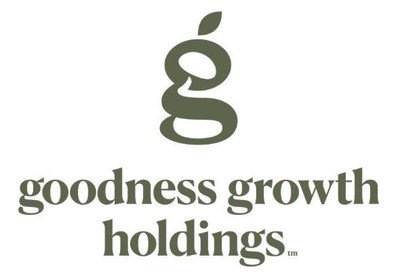Goodness Growth Holdings, Inc. ("Goodness Growth" or the "Company") (CSE: GDNS; OTCQX: GDNSF), a physician-led, science-focused cannabis company and IP developer, today announced the completion of its first ever national cannabis expungement month.
During the month of September, Goodness Growth hosted or sponsored four expungement clinics in Minnesota , Maryland and New York and helped more than 100 people file the necessary paperwork to get their simple, nonviolent cannabis charges expunged from their records.
Minor cannabis charges continue to show up for decades after conviction on background checks that are commonly run as part of the application process for jobs, home rentals, college admissions and business loans. In some states, they can also restrict a person's ability to vote. Nationwide, 90 percent of cannabis charges are for simple, non-violent possession of cannabis.
Black, Indigenous and Persons of Color have historically been arrested and convicted for cannabis-related charges at much higher rates than their white counterparts. Even today, as 36 states and Washington, D.C. have legalized the medical or adult use of marijuana, minorities remain nearly four times more likely to be arrested for cannabis possession, 50 percent more likely to be convicted, and on average face 50 percent longer prison sentences. Today, over 40,000 people are still incarcerated for cannabis charges, while the industry has grown to over $10 billion in annual sales.
"As a company that profits by legally growing and distributing cannabis products, we believe it is our responsibility to help those who have been harmed by the racially-biased enforcement of cannabis prohibition and the war on drugs," said Paloma Lehfeldt , MD, Director of Medical Education and Co-Chair of the Diversity, Equity and Inclusion Council of Goodness Growth Holdings. "Facilitating expungement clinics is just one of the many ways that we can start to right this wrong."
During September, Goodness Growth held Minnesota's first expungement clinic at its Green Goods cannabis patient center in Minneapolis with the help of law professors and students from the Mitchell Hamline School of Law. Expungement in Minnesota is a multi-step process that includes an appearance in court; at the clinic, participants received assistance filling out the paperwork to start the process and received information about the next steps. Goodness Growth and the Mitchell Hamline School of Law are also planning joint efforts to continue to support participants as they move through the process, including additional clinics and pro bono legal services. Goodness Growth is also working with county judges to hold county court expungement days, with cannabis expungement cases scheduled on the same day.
In Maryland , Goodness Growth partnered with law firm Funk & Bolton to host a virtual expungement clinic. Attorneys met with participants in a secure virtual environment to complete expungement paperwork. Goodness Growth also sponsored an in-person expungement clinic at Mary & Main dispensary with Minorities for Medical Marijuana (M4MM).
In New York , Goodness Growth partnered with Women of Color, CannaClusive, the Black Bar Association and other cannabis industry and legal aid organizations to host a 30-day virtual expungement clinic. In addition to information about New York's automatic expungement, the clinic also offered resources for those experiencing PTSD and emotional trauma related to their arrest and conviction. The virtual New York clinic continues through Oct. 16 ; interested persons can take an expungement pre-qualification survey or access information and resources by visiting https://wocworldwide.com/expungement .
The September clinics follow others held by Goodness Growth in Arizona and Maryland over the past year.
"We are proud of the expungement clinics we have hosted and the work we have done to help those with minor, non-violent cannabis convictions clear those charges from their records," said Amber Shimpa , Chief Administrative Officer with Goodness Growth. "At the same time, we recognize that these efforts, while important, are a first step in supporting people who have been harmed by cannabis prohibition. The partnerships we have made within the cannabis industry and within our local communities will help us reach more people and offer a wider range of support through expungement, but they will also help us ensure more broadly that the cannabis industry is fair and equitable to all people."
In addition to holding expungement clinics throughout the country, Goodness Growth partners with the Last Prisoner Project ("LPP") in support of its Roll It Up for Justice campaign. The LPP is a non-profit organization dedicated to cannabis criminal justice reform; Roll It Up for Justice raises money for LPP's clemency initiative, which works to release cannabis prisoners and help them rebuild their lives post-incarceration. Through that partnership, Goodness Growth's Green Goods cannabis patient centers in Minnesota and Maryland have raised more than $3,000 for Roll It Up for Justice.
About Goodness Growth Holdings, Inc.
Goodness Growth Holdings, Inc., is a physician-led, science-focused holding company whose mission is to bring the power of plants to the world. The Company's operations consist primarily of its multi-state cannabis company subsidiary, Vireo Health, Inc., and its science and intellectual property incubator, Resurgent Biosciences, Inc. The Company manufactures proprietary, branded cannabis products in environmentally friendly facilities and state-of-the-art cultivation sites and distributes its products through its growing network of Green Goods ® and other retail locations and third-party dispensaries. Its team of more than 500 employees are focused on the development of differentiated products, driving scientific innovation of plant-based medicines, and developing meaningful intellectual property. Today, the Company is licensed to grow, process, and/or distribute cannabis in eight markets and operates 18 dispensaries across the United States . For more information about Goodness Growth Holdings, please visit www.goodnessgrowth.com .
Contact Information
Media Inquiries:
Albe Zakes
Vice President, Corporate Communications
albezakes@vireohealth.com
(267) 221-4800
![]() View original content to download multimedia: https://www.prnewswire.com/news-releases/goodness-growth-holdings-completes-first-national-cannabis-expungement-month-301392750.html
View original content to download multimedia: https://www.prnewswire.com/news-releases/goodness-growth-holdings-completes-first-national-cannabis-expungement-month-301392750.html
SOURCE Goodness Growth Holdings

